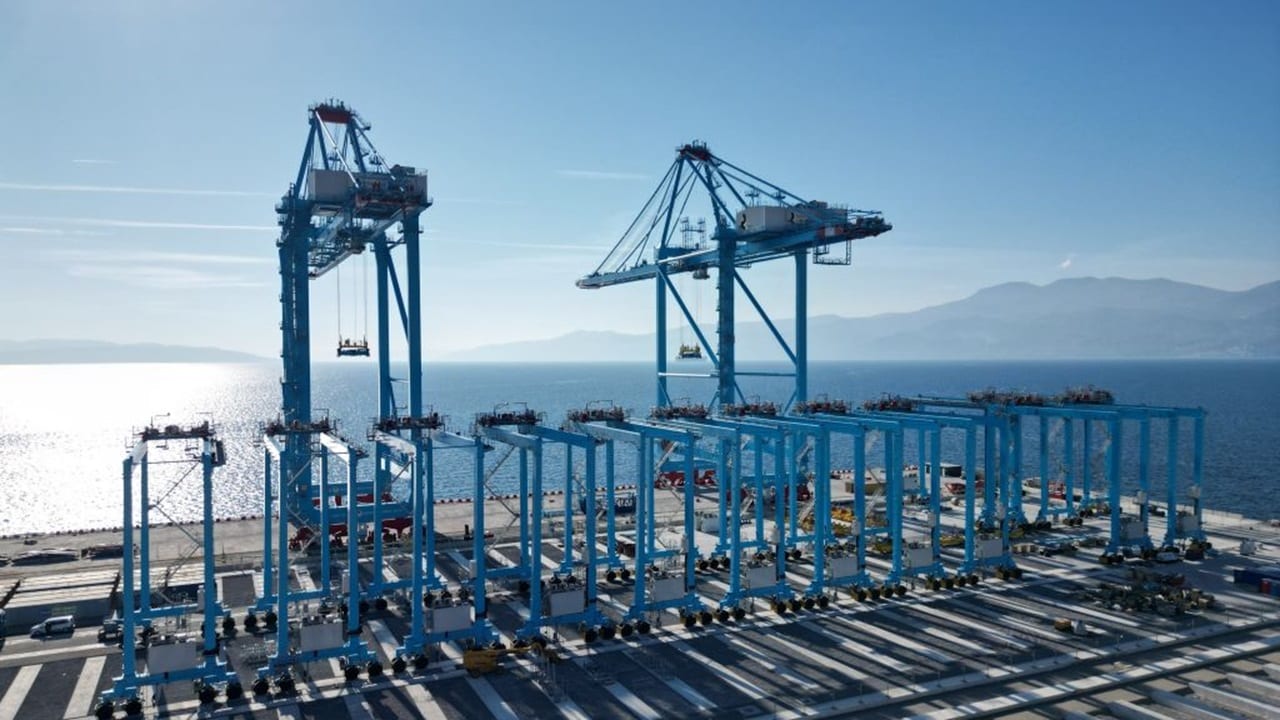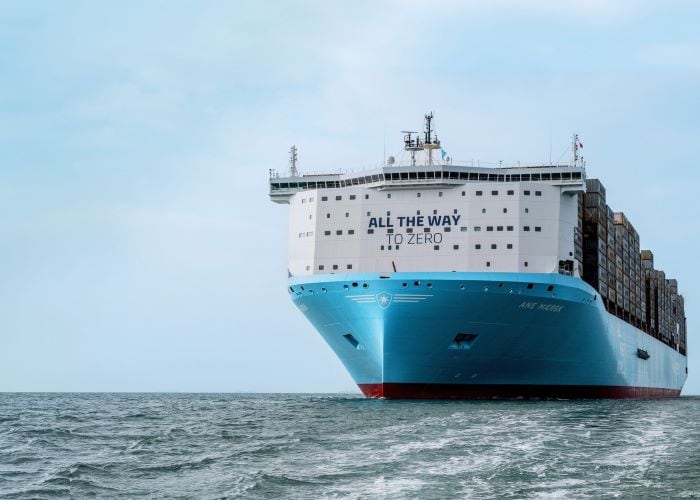
2024 Sustainability highlights
Progress in a changing world
2024 was marked by geopolitical tensions, the impacts of climate-related weather events, and increased interdependencies in the world’s energy transition. Learn more about how Maersk progressed on our commitments to responsible business conduct and decarbonisation against this backdrop in 2024, and how we’ve matured our ESG strategy and priorities.
For the first time, we are reporting on our sustainability performance as an integrated part of the A.P. Moller - Maersk 2024 Annual Report.
Cold chains and climate change
Cold chain logistics are crucial to global food supply chains and a key opportunity to reduce greenhouse gas emissions. In 2024, Maersk opened the Ruakura Superhub integrated cold chain facility in Hamilton, New Zealand.
Ruakura enables customers, including Fonterra, New Zealand’s largest dairy company, to seamlessly transfer goods between various transport modes along the strategic Auckland-Tauranga trade corridor, which handles 65% of the country’s freight. The cutting-edge facility includes rooftop solar panels, rainwater collection and reuse, electric vehicle charging stations, and uses CO2 instead of ammonia in all freezers.
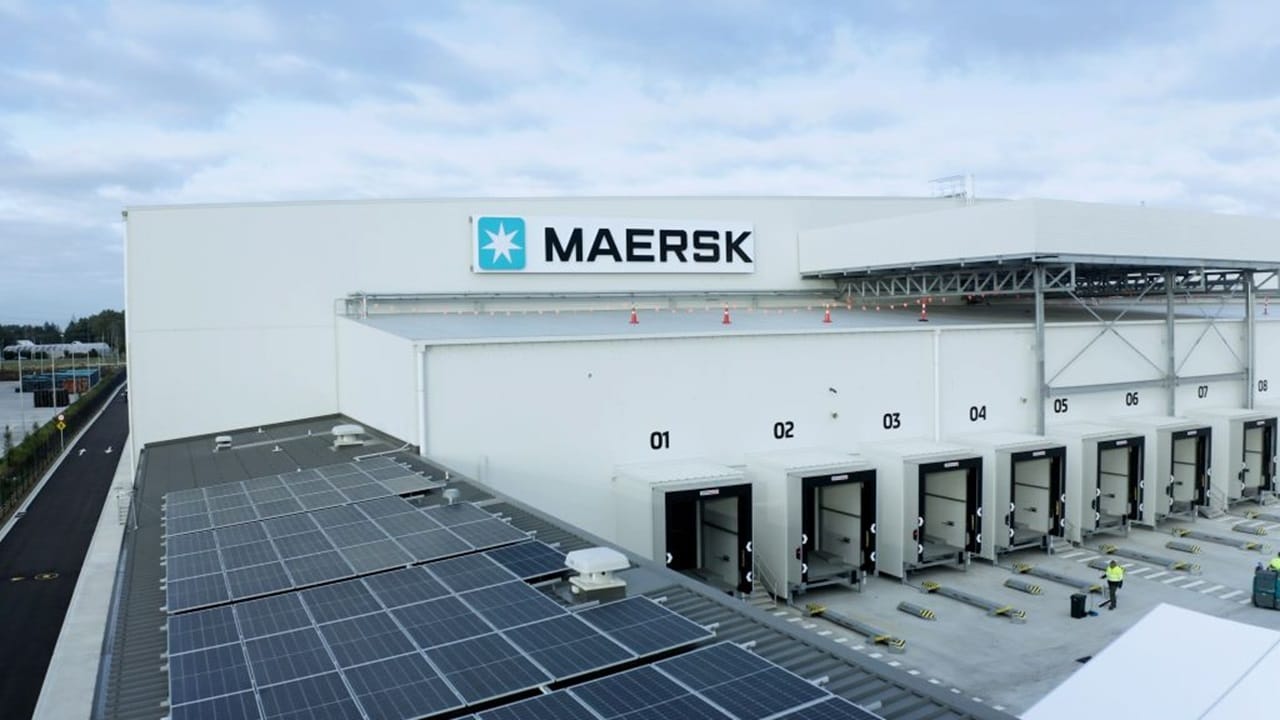
Long-haul routes take flight
Air cargo is an essential and integrated part of many customers’ global supply chains, particularly for high-value goods or those requiring rapid delivery. However, it remains one of the most challenging transport modes to decarbonise due to the scarcity and high cost of Sustainable Aviation Fuel.
In 2024, Maersk expanded its fleet with two Boeing 777F aircraft, among the most fuel-efficient freighters in the industry - especially for long-haul operations. The first aircraft, the Maersk Swan, was delivered at a ceremony at Boeing’s headquarters in Seattle, US.
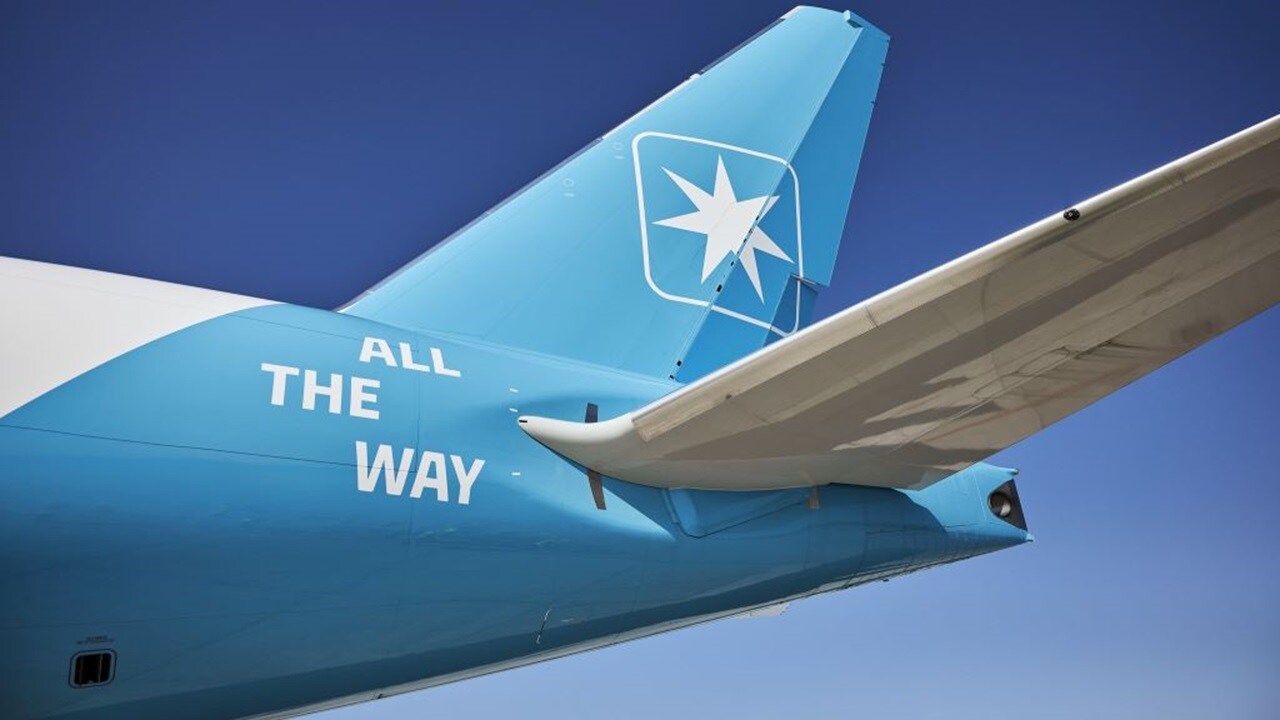
Putting gender diversity front and centre
In 2024, Maersk transformed operations at one of its Container Freight Station (CFS) warehouses in Chennai, India by introducing a complete shift run entirely by women employees. This initiative underscores Maersk’s dedication to enhancing gender diversity across all roles and job levels.
In addition to transforming our operations, such initiatives challenge the status quo in the traditionally male-dominated logistics industry sector. Women at this CFS are supported through comprehensive training programs that cover professional and personal safety, as well as the many skills necessary to excel in warehouse operations.
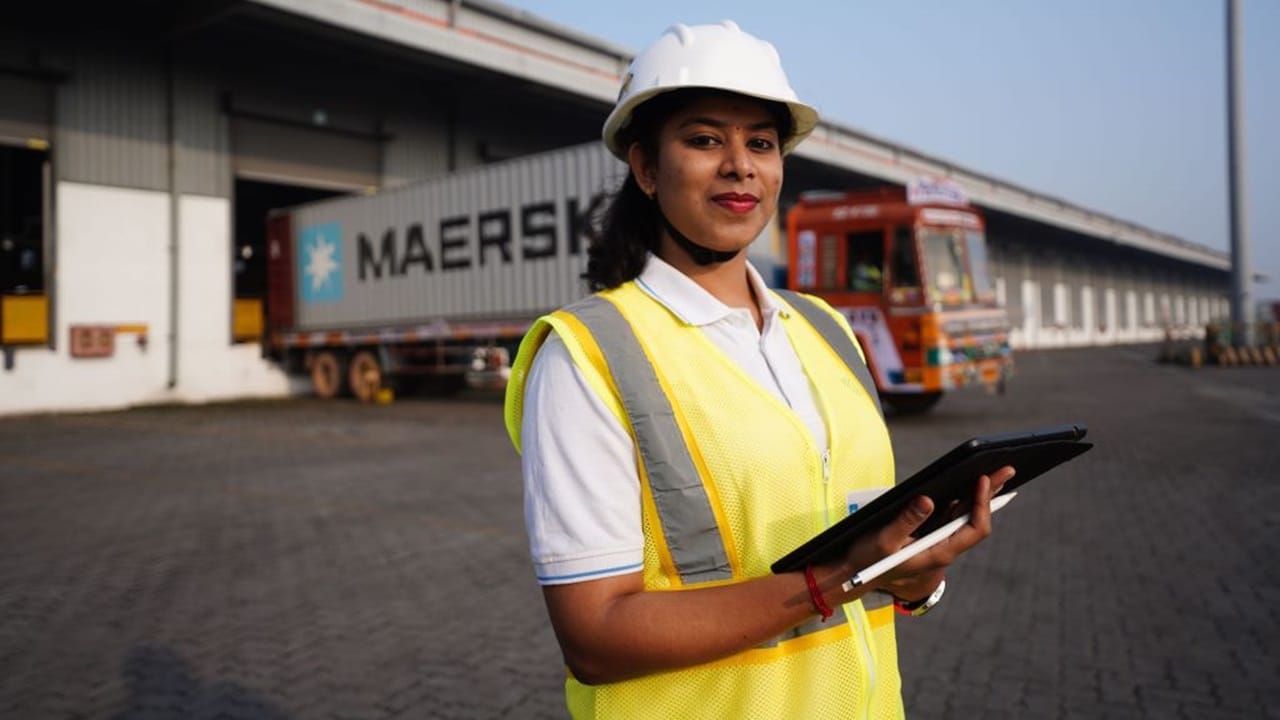
Renewable electricity for logistics
The Maersk Logistics Park in Jeddah, Saudi Arabia, the Middle East’s most expansive integrated logistics park, opened its doors in 2024. The 225,000m2 greenfield site includes storage and distribution zones, a hub for transshipment and air freight and an e-commerce fulfilment centre.
The site features a 64,000 m2 solar-panelled rooftop, which will produce up to 15 MW of power, covering two-thirds of its energy requirements. Supporting youth and gender diversity in Saudi Logistics, the park pioneered a Female Logistics and Services Academy, empowering women with training, mentorship and career development.
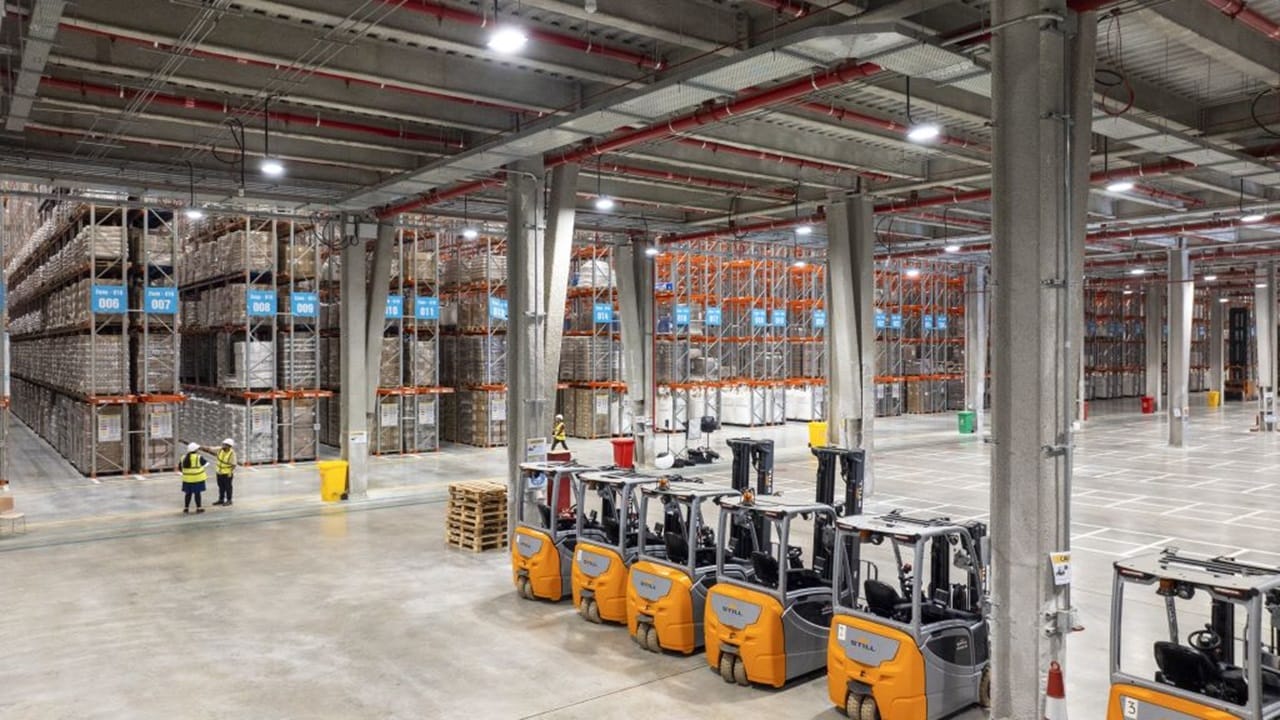
Methanol-capable vessels and the fuels to sail them
In 2024, Maersk took delivery of seven new large dual-fuel methanol-capable vessels, including Antonia Maersk, shown here in Aarhus, Denmark. She was christened by our customer Vestas, a Danish sustainable energy solution producer.
While the vessel technology to decarbonise ocean transport is readily available, the biggest challenge is securing the green fuels for these ships. Maersk signed additional offtake agreements in 2024 and has secured more than half of the projected 2027 demand for its new vessels.
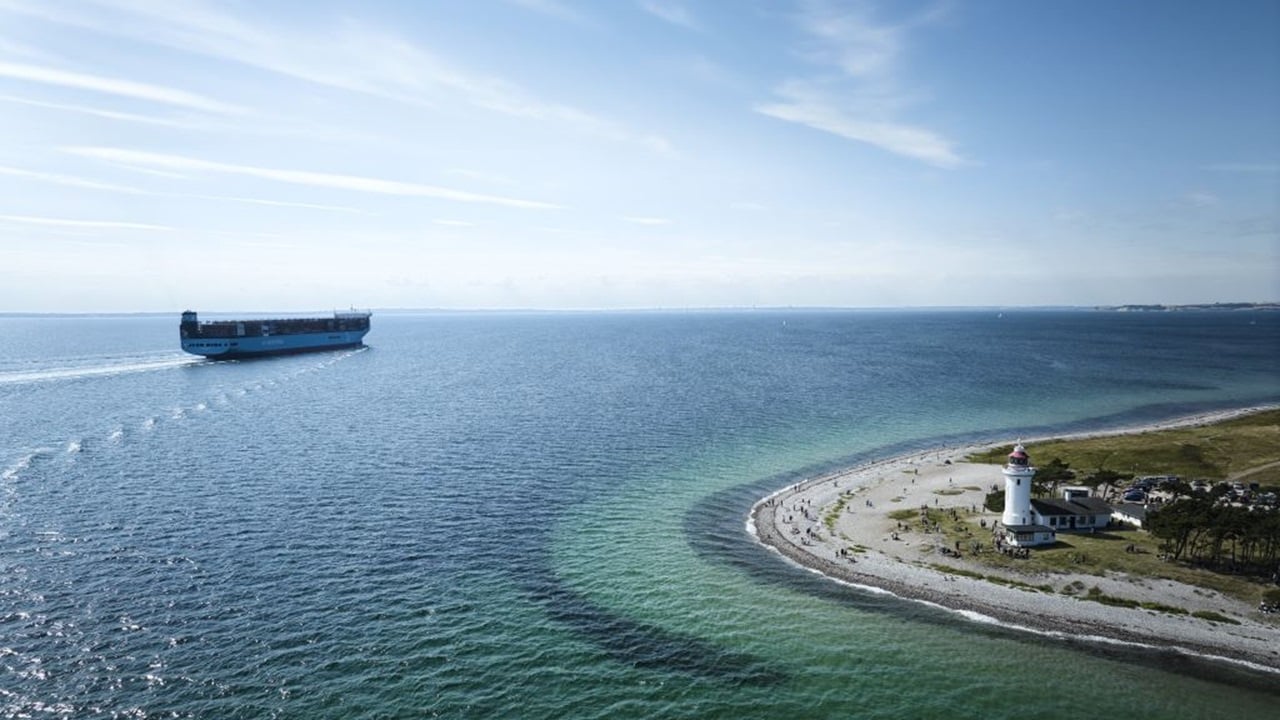
An electric future for terminals
In 2024, APM Terminals broke ground on the Rijeka Gateway in Croatia – one of Europe’s most modern container terminals. The majority of the Rijeka Gateway terminal’s equipment will be electric and powered entirely by renewable electricity sources. The terminal also includes advanced water, lighting and noise management systems to minimise environmental impacts.
The remotely controlled terminal will foster economic growth in the region through innovation and high efficiency. Once operational in 2025, the terminal is expected to create around 300 direct jobs within the terminal alone and have an annual capacity of over one million TEUs.
